Washington Advocacy
Emergency Commodity Assistance Program Sign Up Begins
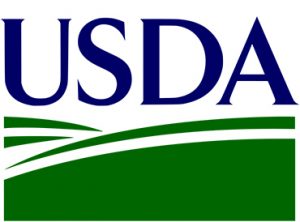 TIFTON, Ga., March 18, 2025 – The Farm Service Agency is issuing a notice in the Federal Register announcing the funding for the Emergency Commodity Assistance Program (ECAP), which will provide economic assistance payments to eligible producers of eligible commodities for the 2024 crop year. ECAP is a new FSA program authorized by the American Relief Act, 2025. This notice also announces the eligibility (commodities, acres, producers, and losses), payment calculations, payment limitations, and how to apply (pre-filled application and any required adjustments) for ECAP.
TIFTON, Ga., March 18, 2025 – The Farm Service Agency is issuing a notice in the Federal Register announcing the funding for the Emergency Commodity Assistance Program (ECAP), which will provide economic assistance payments to eligible producers of eligible commodities for the 2024 crop year. ECAP is a new FSA program authorized by the American Relief Act, 2025. This notice also announces the eligibility (commodities, acres, producers, and losses), payment calculations, payment limitations, and how to apply (pre-filled application and any required adjustments) for ECAP.
This document is scheduled to be published in the Federal Register on March 19, 2025, and available online at https://federalregister.gov/d/2025-04604, and on https://govinfo.gov (Pub. L. 118-158) and administered by FSA. ECAP will use up to $10 billion to issue one-time economic assistance payments to eligible producers of eligible commodities for the 2024 crop year. These payments are intended to help farmers cope with losses from natural disasters and a difficult farm economy, and will help preserve family farms and ranches across the country while also continuing to ensure food and agricultural security for our nation.
Eligible commodities include barley, canola, crambe, corn, dry peas, extra-long staple cotton, flax, large chickpeas, mustard, lentils, oats, peanuts, rapeseed, rice, safflower, sesame, small chickpeas, sorghum, soybeans, sunflower, upland cotton, and wheat. The payment rate for peanuts is $75.51 per acre.
Farmers can sign up on the FSA website on March 19 at https://www.fsa.usda.gov/ecap. Applications must be submitted by Aug. 15, 2025.
U.S. Peanut Federation signs on to letters supporting agricultural tax provisions
WASHINGTON, D.C., Jan. 2, 2025 – The The U.S. Peanut Federation recently joined over 260 commodity organizations in sending letters on agricultural tax priorities to U.S. House of Representatives Ways and Means Committee members on the Main Street Tax Team and the Rural America Tax Team.
The letter conveys the importance of supporting various tax provisions that impact the agriculture industry, including maintaining stepped-up basis, estate tax relief, restoring 100 percent bonus depreciation, permanently implementing lower individual tax rates and expanded tax brackets, and permanently establishing the 199A qualified business income deduction. Additionally, support is urged for maintaining Section 179 expensing, 1031 like-kind exchanges, and the 20 percent capital gains rate.
The letter mentioned, “We write to highlight the critical importance of several business tax provisions that significantly impact farmers, ranchers, landowners and other agricultural businesses across the United States. These provisions, which are not an exhaustive list and are not presented in any priority order, enable these agricultural operations to invest in their futures, maintain competitiveness, and contribute to the nation’s food security and economic stability.”
U.S. Peanut Federation signs on to letter supporting inputs and pest management tools
WASHINGTON, D.C., Jan. 2, 2025 – The The U.S. Peanut Federation signed onto a letter to U.S. Senate Committee on Agriculture, Nutrition, and Forestry Chairwoman Debbie Stabenow and Ranking Member John Boozman, along with U.S. House Committee on Agriculture Chairman GT Thompson and Ranking Member David Scott.
The letter explained how recent discussions have created significant misunderstandings about essential tools such as pesticides and genetic innovations. The signees urged Congressional agriculture leaders to reject any attempts to remove access to pest management technologies, which would make the U.S. more reliant on foreign competitors for food and agricultural goods.
The letter states, “Safe, affordable, and abundant supplies of agricultural products are essential to the well being of our country. For decades, millions of American farmers and ranchers have dutifully supplied these goods to U.S. consumers. However, without continued access to safe, appropriately regulated agricultural inputs, the ability to supply these vital agriculture products cannot be ensured.”
“Weeds, insects, and fungus outbreaks can inflict significant crop yield losses. They can also infest grazing lands to the point they are unusable for livestock and contribute to wildfire fuel loads. Without continued access to pesticidal tools needed to protect against devastating pests, U.S. farm and ranch operations would quickly become economically unsustainable, jeopardizing our ability to provide affordable food and other agricultural products to consumers.”
U.S. Peanut Federation joins on letter to President Trump’s Transition Team
WASHINGTON, D.C., Jan. 2, 2025 – The United States Peanut Federation The U.S. Peanut Federation recently joined other agricultural groups in sending a letter to President Trump’s transition team to express eagerness to work with the incoming Trump administration to advance nominees who commit themselves to science- and risk-based decision making.
Read the full letter below:
“As representatives of the food and agriculture value chain, the undersigned organizations write to express our enthusiasm for working with you and upcoming administration leaders to ensure that America continues to have the safest, most affordable food, feed, and fiber supplies in the world. We are eager to support Administration nominees and appointees who commit to science and risk-based decision making.
Science and risk-based decision making will ensure that policy is factually based and efficient in ensuring consumer health and safety. Our organizations support food and nutrition policies that are based on robust scientific evidence, deliver measurable benefits to consumers, and empower consumers to make informed and healthy purchasing decisions while preventing misunderstanding and confusion.
We stand ready to support the next administration and its efforts to advance safe and affordable food, feed, and fiber supplies.”
Key Presidential Nominees
WASHINGTON, D.C., Jan. 2, 2025 – Secretary of the U.S. Department of Agriculture: Brooke Rollins is from Texas and most recently served as president, CEO, and co-founder of America First Policy Institute.
U.S. Trade Representative: Jamieson Greer, a current partner in international trade at King & Spalding in Washington, D.C., but previously Chief of Staff to Robert Lighthizer, President Trump’s former trade representative.
Administrator of the Small Business Administration: Kelly Loeffler of Georgia formerly served in the U.S. Senate, along with other various political and philanthropic involvements.
U.S. Ambassador to China: David Perdue is a former U.S. Senator and lifelong business executive from Georgia.
Secretary of Veterans Affairs: Doug Collins is an Air Force veteran who previously served in the U.S. House of Representatives representing Georgia 9th congressional district.
U.S. Peanut Federation thankful for passage of Agricultural Economic and Disaster Assistance
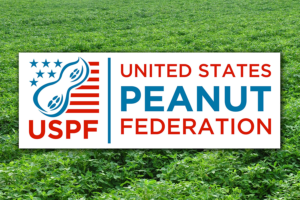 WASHINGTON, D.C., Jan. 2, 2025 – The United States Peanut Federation applauds Congress for including agricultural economic assistance and disaster assistance in the final passage of the Fiscal Year 2025 (FY25) appropriations legislation. After much deliberation, on December 20, 2024, the U.S. House of Representatives passed H.R. 10545 by a vote of 366-34, which included a continuing resolution for FY25 appropriations funding, a one-year extension of the 2018 Farm Bill, $10 billion in agricultural economic assistance, and $21 billion in agricultural disaster assistance. The U.S. Senate passed H.R. 10545 overnight by a vote of 85-11, and President Biden signed the bill into law later December 21, 2024.
WASHINGTON, D.C., Jan. 2, 2025 – The United States Peanut Federation applauds Congress for including agricultural economic assistance and disaster assistance in the final passage of the Fiscal Year 2025 (FY25) appropriations legislation. After much deliberation, on December 20, 2024, the U.S. House of Representatives passed H.R. 10545 by a vote of 366-34, which included a continuing resolution for FY25 appropriations funding, a one-year extension of the 2018 Farm Bill, $10 billion in agricultural economic assistance, and $21 billion in agricultural disaster assistance. The U.S. Senate passed H.R. 10545 overnight by a vote of 85-11, and President Biden signed the bill into law later December 21, 2024.
Due to the multi-year impact of increased costs of production, low commodity prices, and recent natural disasters, peanut growers are struggling, and many will have difficulty financing their crop for 2025. For many peanut producers, the inclusion of these agricultural assistance provisions in the final legislation will determine whether they continue farming in 2025. USPF leaders are grateful to the peanut state members of Congress and other congressional agricultural leaders who worked tirelessly to ensure these vital initiatives were secured in the final passage of the appropriations bill.
Moving into the new year, peanut producers can expect to receive an estimated economic assistance payment of $76.30 per acre no later than 90 days after the bill is enacted, according to peanut economist Stanley Fletcher.
“We once again would like to extend our gratitude to all of our representatives who stayed steadfast in passing a resolution that would ensure our farmers can continue doing what they do so well- providing this country with the best possible food security in the world,” says Jamie Brown, USPF chairman. “We are thankful that they listened to so many who expressed the challenges that are being faced and have offered an opportunity to meet those challenges in the years to come.”
“After a few long, hard years for peanut farmers who were unsure if they would be able to continue farming in 2025, we are grateful to Congress for passing much-needed financial assistance,” says Joe Boddiford, Georgia Peanut Commission chairman. “Thank you to the members of Congress who worked hard to ensure our farmers would receive relief. It’s a great day for families in rural America who work tirelessly to feed our nation.”
U.S. Peanut Federation partners in hosting Aflatoxin Research Update
 WASHINGTON, D.C., Jan. 2, 2025 – The American Peanut Shellers Association, National Peanut Buying Points Association, Southern Peanut Farmers Federation, and United States Peanut Federation recently hosted an Aflatoxin Research Update at the University of Georgia Conference Center in Tifton, Georgia.
WASHINGTON, D.C., Jan. 2, 2025 – The American Peanut Shellers Association, National Peanut Buying Points Association, Southern Peanut Farmers Federation, and United States Peanut Federation recently hosted an Aflatoxin Research Update at the University of Georgia Conference Center in Tifton, Georgia.
Throughout the day, 18 presentations were given by research leaders from the U.S. Department of Agriculture’s National Peanut Research Lab, research and extension professionals from land grant universities such as Fort Valley State University, University of Georgia, University of Florida, and Mississippi State University.
“The entire peanut supply chain benefits from the work these researchers are doing, but most importantly their work will provide solutions for our farmers,” says Courtney Dorsett, chair of the American Peanut Shellers Association Committee on Regulatory Compliance and Research Coordination. “Tackling the aflatoxin problem leads to peanut varieties that are more drought-tolerant and resistant to insects and diseases. Maintaining yields with fewer inputs under adverse conditions puts money back in the growers’ pockets and ensures that our industry remains sustainable for generations.”
The U.S. House Appropriations Committee previously approved the Fiscal Year 2025 Agriculture, Rural Development, Food and Drug Administration, and Related Agencies legislation, which would continue the peanut aflatoxin contamination research funding for FY 2025 at the same $4 million level as FY 2024. This legislation has not yet been passed and signed into law, but is expected to be finalized late this year or early next year.
“The presentations have underscored the critical need for ongoing research to address the challenges posed by aflatoxin and its impact on the peanut industry,” says Chris Chammoun, executive director of American Peanut Shellers Association. “The funding secured by the United States Peanut Federation has been instrumental in driving these efforts forward, and we are deeply grateful for the support that makes this important work possible.”
The U.S. Peanut Federation will continue to work with USDA, land grant universities and peanut organizations on research, funding, and updates surrounding aflatoxin in peanuts.
USDA Announces Sign Up for Assistance Programs
Enrollment opens Jan. 23, 2023 and runs through June 2, 2023
 WASHINGTON, D.C., Jan. 9, 2023 – The U.S. Department of Agriculture recently announced the sign up for two programs which will provide relief for producers impacted by disaster and the pandemic. Agriculture Secretary Tom Vilsack made the announcement during the American Farm Bureau Federation annual convention in January.
WASHINGTON, D.C., Jan. 9, 2023 – The U.S. Department of Agriculture recently announced the sign up for two programs which will provide relief for producers impacted by disaster and the pandemic. Agriculture Secretary Tom Vilsack made the announcement during the American Farm Bureau Federation annual convention in January.
The new programs are to fill gaps in 2020/2021 Natural Disaster Assistance (Emergency Relief Program (ERP) Phase 2) and 2020 Pandemic Assistance (Pandemic Assistance Revenue Program (PARP). The two new programs wrap-up and fill remaining gaps in previous natural disaster and pandemic assistance. To be eligible for ERP Phase Two, producers must have suffered a decrease in allowable gross revenue in 2020 or 2021 due to necessary expenses related to losses of eligible crops from a qualifying natural disaster event. Assistance will be primarily to producers of crops that were not covered by Federal Crop Insurance or NAP, since crops covered by Federal Crop Insurance and NAP were included in the assistance under ERP Phase One.
The ERP covers losses to crops, trees, bushes and vines due to a qualifying natural disaster event in calendar years 2020 and 2021. USDA is also providing critical support to producers impacted by the effects of the COVID-19 outbreak through PARP. To be eligible for PARP, an agricultural producer must have been in the business of farming during at least part of the 2020 calendar year and had a 15% or greater decrease in allowable gross revenue for the 2020 calendar year, as compared to a baseline year.
The ERP Phase 2 and PARP application period is open from January 23, 2023 through June 2, 2023. For more information, producers should contact their local USDA Farm Service Agency service center or reference the ERP Phase 2 fact sheet, PARP fact sheet or the ERP Phase Two-PARP Comparison fact sheet on the USDA website at usda.gov.
U.S. Congress Passes Omnibus Appropriations Bill
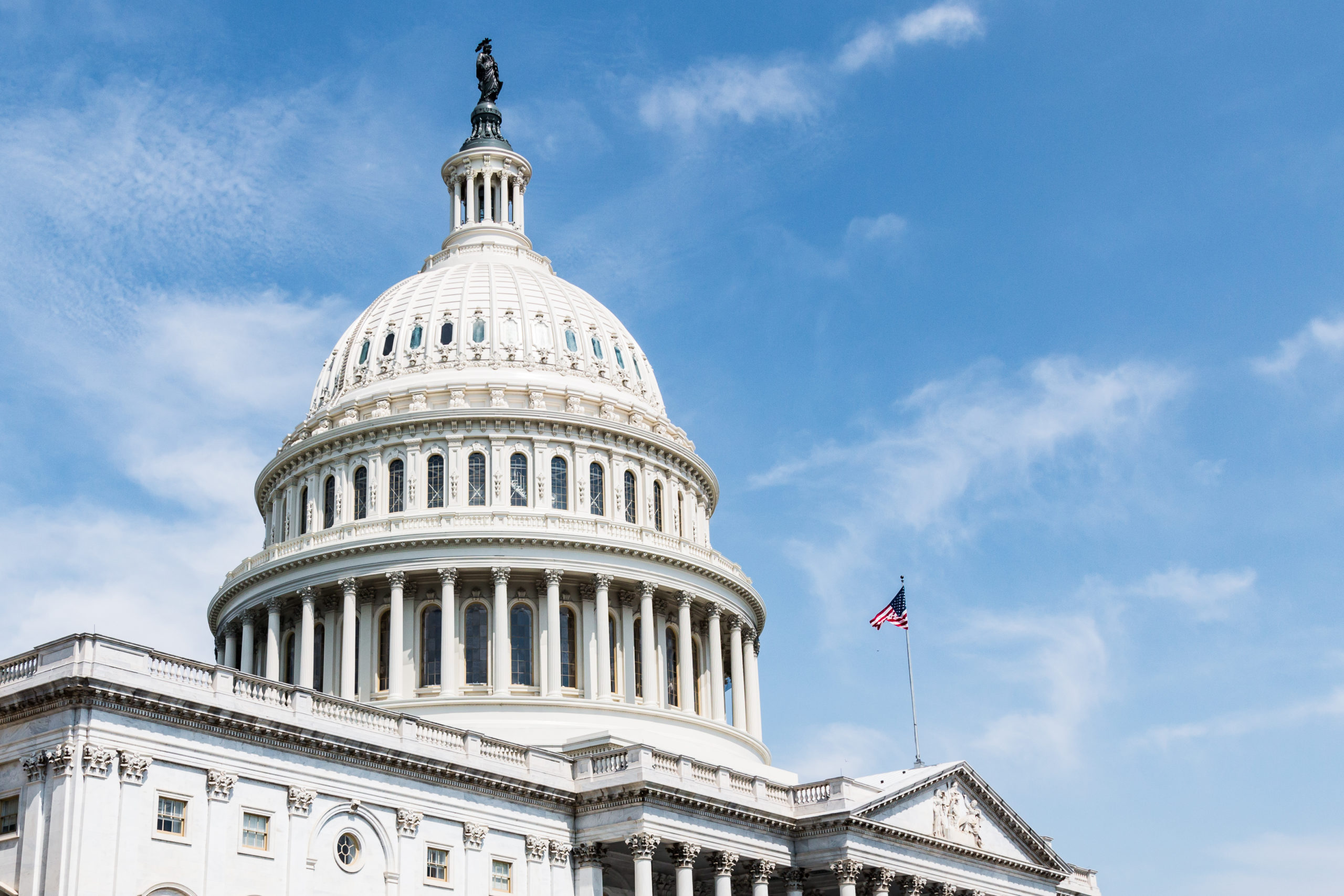 WASHINGTON, D.C., Dec. 23, 2022 – The U.S. Congress has passed the $1.7 trillion Fiscal Year (FY) 2023 Omnibus Appropriations bill. The Consolidated Appropriations Act of 2023 consists of all 12 FY23 appropriation bills, including the $25.5 billion Agriculture, Rural Development, Food and Drug Administration, and Related Agencies funding bill.
WASHINGTON, D.C., Dec. 23, 2022 – The U.S. Congress has passed the $1.7 trillion Fiscal Year (FY) 2023 Omnibus Appropriations bill. The Consolidated Appropriations Act of 2023 consists of all 12 FY23 appropriation bills, including the $25.5 billion Agriculture, Rural Development, Food and Drug Administration, and Related Agencies funding bill.
Included in the bill are peanut provisions proposed by U.S. House Appropriations Agriculture Subcommittee Chairman Sanford Bishop (D-GA) and supported by the peanut industry. These U.S. Peanut Federation (USPF) supported research initiatives—aflatoxin and nutrition—are in their second year of funding. Total funding for FY 2023 is $4 million for aflatoxin research at the U.S. Department of Agriculture’s (USDA) Peanut Research Laboratory in Dawson, Georgia and $1.5 million for the USDA Agricultural Research Service (ARS) to work on peanut nutrition priorities.
The funding for peanut research will support activities and projects working to mitigate aflatoxin in peanuts and enhance ongoing collaborations with land grant institutions to further advance research efforts.
Continue reading . . .
U.S. Peanut Federation Testifies at U.S. Senate Subcommittee Hearing focusing on Agricultural Trade
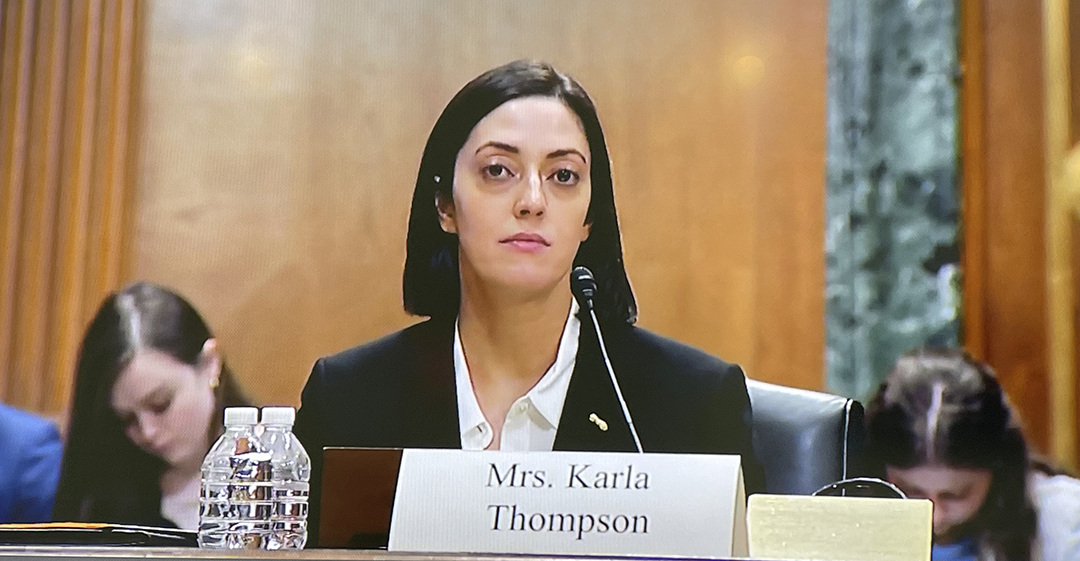 WASHINGTON, D.C., June 9, 2022 – The U.S. Senate Agriculture Subcommittee on Commodities, Risk Management, and Trade, held a hearing June 9, 2022, on “Agricultural Trade: Priorities and Issues Facing America’s Farmers.” Representing the U.S. Peanut Federation, Karla Baker Thompson with JET Farms Georgia and Integrity Farms of Camilla, Georgia, presented testimony on the export market for peanuts and some of the issues the peanut industry is facing.
WASHINGTON, D.C., June 9, 2022 – The U.S. Senate Agriculture Subcommittee on Commodities, Risk Management, and Trade, held a hearing June 9, 2022, on “Agricultural Trade: Priorities and Issues Facing America’s Farmers.” Representing the U.S. Peanut Federation, Karla Baker Thompson with JET Farms Georgia and Integrity Farms of Camilla, Georgia, presented testimony on the export market for peanuts and some of the issues the peanut industry is facing.
In Thompson’s testimony, she presented information on some of the major export markets. In Canada, the U.S. has witnessed an increase in the last few years, but it is still significantly off when compared to export numbers prior to 2013. In Japan, the U.S. has generally seen a flat trend line with significant market swings year after year. The U.S. has experienced a general upward trend in market share for Mexico. However, there are large swings in the Mexican market year after year. China is an unpredictable market for U.S. peanuts. While the China market made a large purchase of U.S. peanuts in 2016 and then again in 2020, there is clearly no consistency in U.S. peanut export sales to China.
Continue reading . . .
Peanut Farmers Donate Over 10,000 Jars of Peanut Butter to Capital Area Food Bank During USPF Washington, D.C. Fly-In
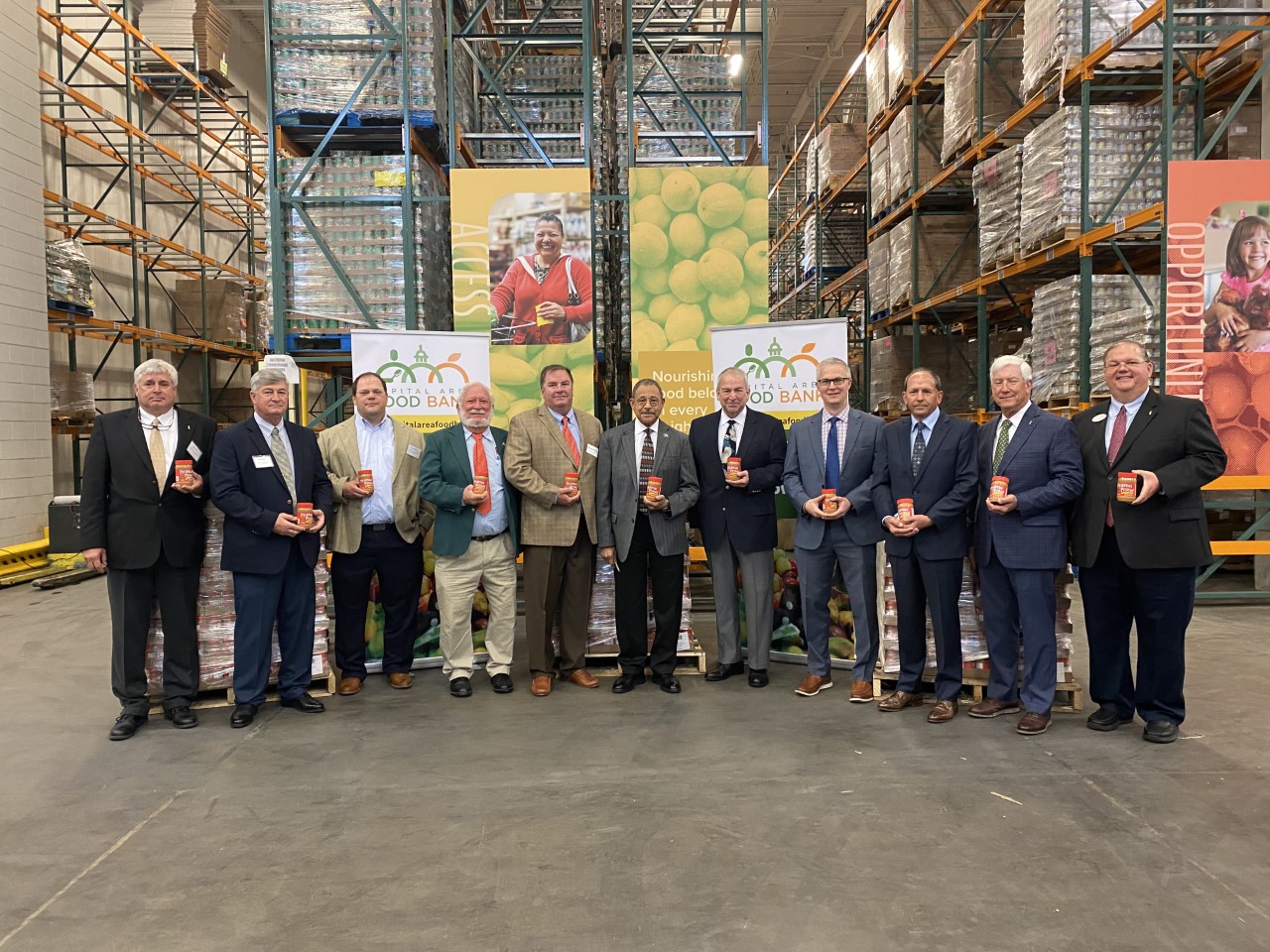 WASHINGTON, D.C., March 18, 2022 – The United States Peanut Federation (USPF) combined advocacy with service during their Spring 2022 Washington D.C. Fly-in. The Georgia Peanut Commission in conjunction with USPF proudly partnered with Peanut Proud, the peanut industry’s humanitarian relief organization, to donate 10,080 jars of peanut butter to serve the Nation’s Capital and surrounding area. The delivery of this donation was made possible by SouthernAG Carriers who graciously donated their truck carrier service to transport the peanut butter.
WASHINGTON, D.C., March 18, 2022 – The United States Peanut Federation (USPF) combined advocacy with service during their Spring 2022 Washington D.C. Fly-in. The Georgia Peanut Commission in conjunction with USPF proudly partnered with Peanut Proud, the peanut industry’s humanitarian relief organization, to donate 10,080 jars of peanut butter to serve the Nation’s Capital and surrounding area. The delivery of this donation was made possible by SouthernAG Carriers who graciously donated their truck carrier service to transport the peanut butter.
The United States Peanut Federation (USPF) members were joined on site at the Capital Area Food Bank warehouse by U.S. Congressman Sanford Bishop of Georgia. Congressman Bishop is the Chairman of the U.S. House Appropriations Subcommittee on Agriculture, Rural Development, FDA, and Related Agencies and is a champion of the peanut industry. “Peanut butter is nutrition packed, versatile, inexpensive, easy to store and is a convenient source of protein and heart-healthy fats,” said Congressman Bishop. “It helps reduce insulin resistance and is a good source of fiber. On top of that, it’s good!”
Continue reading . . .
U.S. Peanut Federation Testifies at U.S. House Ag Committee Hearing
 WASHINGTON, D.C., March 2, 2022 – The U.S. House Committee on Agriculture held a hearing March 1, 2022, on “A 2022 Review of the Farm Bill: Commodity Group Perspectives on Title I.” Chairman David Scott, D-Georgia, opened the hearing stating, “As we look ahead to the 2023 Farm Bill, I am committed to making sure that the full breadth of voices from our farmers, ranchers, foresters, and consumers is represented in our efforts. Today’s panel is an integral piece in that process, and I look forward to the months ahead as we discuss the other farm bill titles and issue areas.”
WASHINGTON, D.C., March 2, 2022 – The U.S. House Committee on Agriculture held a hearing March 1, 2022, on “A 2022 Review of the Farm Bill: Commodity Group Perspectives on Title I.” Chairman David Scott, D-Georgia, opened the hearing stating, “As we look ahead to the 2023 Farm Bill, I am committed to making sure that the full breadth of voices from our farmers, ranchers, foresters, and consumers is represented in our efforts. Today’s panel is an integral piece in that process, and I look forward to the months ahead as we discuss the other farm bill titles and issue areas.”
Nine commodity groups testified at the hearing including the U.S. Peanut Federation’s witness, Meredith McNair Rogers, a Camilla, Georgia, peanut grower. Ms. Rogers discussed the rising costs of inputs in peanut production and related analyses from representative farming operations.
Continue reading . . .
U.S. Peanut Federation Hosts Ag Employer Workshop
 WASHINGTON, D.C., Jan. 24, 2022 – The United States Peanut Federation (USPF) held an Agricultural Employer AG Labor Roundtable in Albany, Georgia on January 21. Dan Bremer, CEO of AgWorks led the discussion on Ag labor solutions for the peanut industry. Participants in the Roundtable included USPF grower, sheller, and buying point members.
WASHINGTON, D.C., Jan. 24, 2022 – The United States Peanut Federation (USPF) held an Agricultural Employer AG Labor Roundtable in Albany, Georgia on January 21. Dan Bremer, CEO of AgWorks led the discussion on Ag labor solutions for the peanut industry. Participants in the Roundtable included USPF grower, sheller, and buying point members.
Dan Bremer explained the significant difference in mandatory wages for H2A labor versus H2B labor. He spoke on the intricacies of how far in advance producers must apply for their labor needs, what a laborer’s roles in growing and processing can be, and the length of their contract.
Continue reading . . .
U.S. Senators Seeks Administration’s Assistance with EU Peanut Trade Barrier
USPF Applauds Senator’s Bipartisan Efforts for U.S. Peanut Industry
 WASHINGTON, D.C., June 23, 2021 – The United States Peanut Federation (USPF), comprised of peanut growers, shellers, and buying points, applauded the efforts of nineteen U.S. Senators requesting assistance from the Administration on European Union (EU) non-tariff trade barriers for U.S. peanut exports. U.S. Senators Raphael Warnock (D-GA) and Tommy Tuberville (R-AL) led the Senate effort on the letter.
WASHINGTON, D.C., June 23, 2021 – The United States Peanut Federation (USPF), comprised of peanut growers, shellers, and buying points, applauded the efforts of nineteen U.S. Senators requesting assistance from the Administration on European Union (EU) non-tariff trade barriers for U.S. peanut exports. U.S. Senators Raphael Warnock (D-GA) and Tommy Tuberville (R-AL) led the Senate effort on the letter.
The U.S. Department of Agriculture (USDA) grades U.S. peanuts for quality and safety including testing protocols for aflatoxin. However, in addition to the USDA’s safety measures, the EU has placed further excessive aflatoxin requirements on U.S. peanut imports. These additional requirements have become non-tariff trade barriers for the U.S. peanut industry. In 2020, U.S. growers exported 668,000 metric tons of peanuts. The EU’s stringent tests have cost U.S. growers $170 million in recent years, and USPF reports that the losses in the first quarter of 2021 total an additional $130 million in anticipated lost sales.
Continue reading . . .
USDA Reminds Farmers of September 30 Deadline to Update Safety-Net Program Crop Yields
Recent Rule on Payment Limitations and Payment Eligibility Does Not Impact 2020 or 2021 Payments
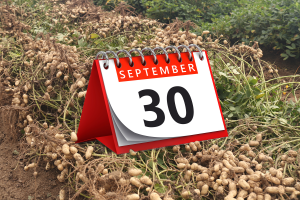 WASHINGTON, D.C., Sept. 25, 2020 – USDA’s Farm Service Agency (FSA) reminds farm owners of the September 30 deadline to update Price Loss Coverage (PLC) program yields for covered commodities on the farm. This is a one-time opportunity for producers to update yields, which are used to calculate 2020 through 2023 payments.
WASHINGTON, D.C., Sept. 25, 2020 – USDA’s Farm Service Agency (FSA) reminds farm owners of the September 30 deadline to update Price Loss Coverage (PLC) program yields for covered commodities on the farm. This is a one-time opportunity for producers to update yields, which are used to calculate 2020 through 2023 payments.
“Don’t miss this one-time opportunity to update yields for the Price Loss Coverage program,” said FSA Administrator Richard Fordyce. “Please contact your FSA county office to schedule an appointment.”
Updating yields requires the signature of one owner on a farm and not all owners. If a yield update is not made, no action is required to maintain the existing base crop yield on file with FSA.
Continue reading . . .
USDA to Provide Additional Direct Assistance to Farmers and Ranchers Impacted by the Coronavirus
Expansion of the Coronavirus Food Assistance Program Begins Sept. 21
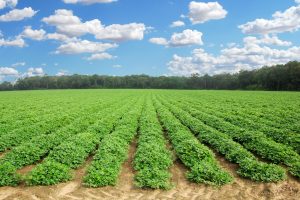 WASHINGTON, D.C., Sept. 18, 2020 – President Donald J. Trump and U.S. Secretary of Agriculture Sonny Perdue today announced up to an additional $14 billion for agricultural producers who continue to face market disruptions and associated costs because of COVID-19. Signup for the Coronavirus Food Assistance Program (CFAP 2) will begin September 21 and run through December 11, 2020.
WASHINGTON, D.C., Sept. 18, 2020 – President Donald J. Trump and U.S. Secretary of Agriculture Sonny Perdue today announced up to an additional $14 billion for agricultural producers who continue to face market disruptions and associated costs because of COVID-19. Signup for the Coronavirus Food Assistance Program (CFAP 2) will begin September 21 and run through December 11, 2020.
“America’s agriculture communities are resilient, but still face many challenges due to the COVID-19 pandemic. President Trump is once again demonstrating his commitment to ensure America’s farmers and ranchers remain in business to produce the food, fuel, and fiber America needs to thrive,” said Secretary Perdue. “We listened to feedback received from farmers, ranchers and agricultural organizations about the impact of the pandemic on our nations’ farms and ranches, and we developed a program to better meet the needs of those impacted.”
Continue reading . . .
USDA Resources Available for Farmers Hurt by 2018, 2019 Disasters
Signup Begins Sept. 11 for More Than $3 Billion in Aid
 WASHINGTON, D.C., Sept. 9, 2019 – The U.S. Secretary of Agriculture Sonny Perdue today announced that agricultural producers affected by natural disasters in 2018 and 2019, including Hurricane Dorian, can apply for assistance through the Wildfire and Hurricane Indemnity Program Plus (WHIP+). Signup for this U.S. Department of Agriculture (USDA) program will begin Sept. 11, 2019.
WASHINGTON, D.C., Sept. 9, 2019 – The U.S. Secretary of Agriculture Sonny Perdue today announced that agricultural producers affected by natural disasters in 2018 and 2019, including Hurricane Dorian, can apply for assistance through the Wildfire and Hurricane Indemnity Program Plus (WHIP+). Signup for this U.S. Department of Agriculture (USDA) program will begin Sept. 11, 2019.
“U.S. agriculture has been dealt a hefty blow by extreme weather over the last several years, and 2019 is no exception,” Perdue said. “The scope of this year’s prevented planting alone is devastating, and although these disaster program benefits will not make producers whole, we hope the assistance will ease some of the financial strain farmers, ranchers and their families are experiencing. President Trump has the backs of our farmers, and we are working to support America’s great patriot farmers.”
More than $3 billion is available through the disaster relief package passed by Congress and signed by President Trump in early June. WHIP+ builds on the successes of its predecessor program the 2017 Wildfire and Hurricane Indemnity Program (2017 WHIP) that was authorized by the Bipartisan Budget Act of 2018. In addition, the relief package included new programs to cover losses for milk dumped or removed from the commercial market and losses of eligible farm stored commodities due to eligible disaster events in 2018 and 2019. Also, prevented planting supplemental disaster payments will provide support to producers who were prevented from planting eligible crops for the 2019 crop year.
Continue reading . . .
USDA Opens 2019 Enrollment for Agriculture Risk Coverage and Price Loss Coverage Programs
2020 Enrollment Period to Open in October
(Washington, D.C., September 3, 2019) – Agricultural producers can now enroll in the Agriculture Risk Coverage (ARC) and Price Loss Coverage (PLC) programs, two popular safety net programs, for the 2019 crop year. Interested producers must sign up for either program by March 15, 2020.
The 2018 Farm Bill reauthorized and made updates to these two USDA Farm Service Agency (FSA) programs. ARC provides income support payments on historical base acres when actual crop revenue declines below a specified guarantee level. PLC program provides income support payments on historical base acres when the price for a covered commodity falls below its effective reference price.
Continue reading . . .
USDA Announces Details of Support Package for Farmers
Washington, D.C., July 25, 2019 – U.S. Secretary of Agriculture Sonny Perdue recently announced further details of the $16 billion package aimed at supporting American agricultural producers while the Administration continues to work on free, fair, and reciprocal trade deals.
In May, President Trump directed Secretary Perdue to craft a relief strategy in line with the estimated impacts of unjustified retaliatory tariffs on U.S. agricultural goods and other trade disruptions. The Market Facilitation Program (MFP), Food Purchase and Distribution Program (FPDP), and Agricultural Trade Promotion Program (ATP) will assist agricultural producers while President Trump works to address long-standing market access barriers.
“China and other nations have not played by the rules for a long time, and President Trump is the first President to stand up to them and send a clear message that the United States will no longer tolerate unfair trade practices,” Secretary Perdue said. “The details we announced today ensure farmers will not stand alone in facing unjustified retaliatory tariffs while President Trump continues working to solidify better and stronger trade deals around the globe.
“Our team at USDA reflected on what worked well and gathered feedback on last year’s program to make this one even stronger and more effective for farmers. Our farmers work hard, are the most productive in the world, and we aim to match their enthusiasm and patriotism as we support them,” Secretary Perdue added.
The Market Facilitation Program (MFP) for 2019, will be administered by the Farm Service Agency (FSA) and will provide $14.5 billion in direct payments to producers. The Market Facilitation Program (MFP) includes peanuts, among other non-specialty and specialty crops, as an eligible crop to receive payments from the USDA. The MFP will pay peanut producers on a county per acre payment rate. Peanut producer payments will range in Georgia from $15 to $150 an acre depending on which county the peanuts are being produced in 2019.
As compared to last year’s round of MFP payments, this year’s program revises payment limit language for eligible producers and will allow a maximum of $500,000 to go to a single producer or legal entity across all three aspects of MFP with a $250,000 limit for a single phase of the program. The adjusted gross income (AGI) limit barring program participation if an applicant’s AGI tops $900,000 also applies, but is waived if three-fourths of that income comes from agriculture.
Market Facilitation Program payments will be made in up to three tranches. The first payment will be made in mid-to-late August with the second and third payments coming in November and January. Applications will be available beginning Monday, July 29, online at www.farmers.gov/manage/mfp.
USDA Announces Loan Rates for 2019-Crop Peanuts
Washington, D.C., June 27, 2019 – USDA’s Commodity Credit Corporation (CCC) today announced 2019-crop loan rates for four types of peanuts. The rates take effect Aug. 1, 2019, the beginning of the peanut crop year.
Eligible producers can obtain peanut loans through their local Farm Service Agency (FSA) county offices or alternative delivery partners such as Designated Marketing Associations (DMA), and Cooperative Marketing Associations (CMA). These loans provide producers with interim financing on their production and facilitate the orderly distribution of loan-eligible peanuts throughout the year. The 2018 Farm Bill established the national loan rate for peanuts at $355 per ton. The 2019 Crop Peanut Rate was calculated using the national loan rate and five-year average quality factors, along with a three-year simple average weighted production. For an average grade ton of 2019-crop peanuts, loan rates by type are:
| Runner-type peanuts | $355.16 per ton |
| Spanish-type peanuts | $344.74 per ton |
| Valencia-type peanuts | $355.49 per ton |
| Virginia-type peanuts | $355.49 per ton |
CCC applies premiums and discounts for quality factors to compute the loan value for an individual ton of peanuts. The actual loan level depends on the percent of various sizes of kernels in each ton. CCC uses the percentage of sound mature kernels (SMK) and sound splits to compute the basic loan value of the load. SMKs are whole kernels that pass over the testing screen officially designated for each type of peanut. Sound splits are whole kernels split into two pieces. Excess sound splits receive discounts. There are discounts for other kernels, damaged kernels and foreign materials. An additional discount occurs for loose shell kernels. Other quality discounts also may apply.
For each percent of SMK in a ton of peanuts, plus each percent of sound splits, the loan levels are:
| Runner-type peanuts | 4.744 per percent |
| Spanish-type peanuts | 4.720 per percent |
| Valencia-type peanuts | 5.261 per percent |
| Virginia-type peanuts | 4.839 per percent |
